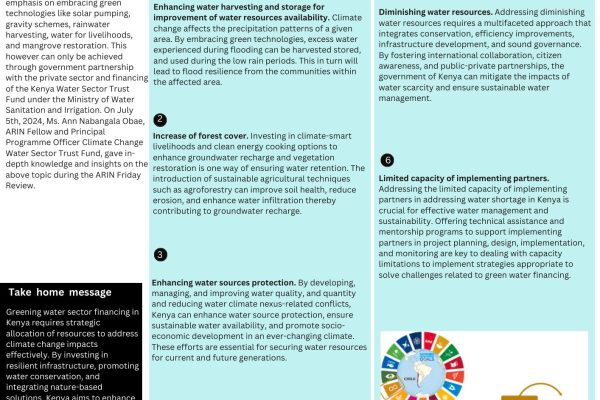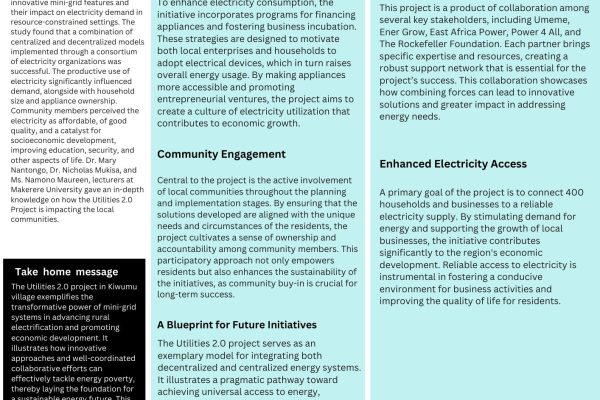Introduction
Nigeria’s energy sector has undergone significant transformation due to changes in its renewable energy regime and economic conditions. Policy mechanisms for the energy sector are highly correlated with economic stability, as energy exports constitute a major portion of the nation’s revenue. Unlike oil-exporting Caribbean countries, most African countries export as a single entity at a prevailing market place. This review delves into the policy gaps hindering renewable energy deployment in Nigeria. The review seeks to analze their impact on the market forces, specifically how private capital and government expenditure compete to restore market efficiency under conditions of reduced shadow prices. Mr. Peter Onyilo, CEO of Axiomata Technologies Limited on July 12, 2024, elaborated on the impacts of the above topic in Nigeria.
Key Messages.
Monopolistic Market Structure
In Nigeria’s electricity sector, the landscape is largely dominated by a handful of significant players, including powerful state-owned companies and influential private firms. This concentration of control generates formidable barriers that prevent smaller, emerging businesses from entering the market. Consequently, opportunities for the introduction of innovative technologies and diverse business models are stifled, limiting advancements that could revitalize and enhance the sector’s performance.
Liquidity Crisis
The Nigerian electricity sector is currently grappling with a deepening financial crisis that has led to a severe liquidity shortfall. This predicament presents daunting challenges for the development and implementation of renewable energy projects. The sector is encumbered by a history of long-standing debts that remain unpaid, which severely hampers the capacity of distribution companies (DisCos) to invest in crucial infrastructure and necessary improvements. Without adequate financing, the sector struggles to evolve and meet the growing energy demands.
Policy Gaps
Nigeria’s framework governing renewable energy is marked by significant policy deficiencies that inhibit growth and progress. One of the most critical shortcomings is the scarcity of appealing incentives, such as tax incentives and subsidies, that could attract investment in the renewable energy space. Furthermore, continual shifts in government policies and regulations create an environment of instability, making it increasingly challenging for renewable energy projects to solidify their footing and thrive.
Stakeholder Distrust
The persistent alterations in governmental policies breed a climate of uncertainty that disheartens investors and complicates the efforts of project developers. This unpredictability not only hinders thorough planning but also obstructs the execution of long-term initiatives. A lack of transparency in the regulatory processes further exacerbates the situation, fostering a sense of mistrust among stakeholders. When communication is opaque and decision-making processes seem exclusive, investors and stakeholders are left feeling alienated and uncertain about the rules governing their financial commitments.
Pricing Power
In this monopolistic market, the dominant players wield significant power over pricing mechanisms, often resulting in inflated costs for consumers. The absence of competitive forces diminishes the impetus to lower prices or improve service quality. Consequently, these heightened energy costs can deepen the plight of energy poverty, making it increasingly difficult for low-income households to afford essential electricity services. Rural and underserved communities, in particular, find themselves disproportionately affected, enduring not only higher expenses but also inferior service quality.
Conclusion
Addressing the multifaceted challenges and policy shortcomings within Nigeria’s renewable energy sector demands a well-rounded and strategic approach. It is essential to establish a coherent regulatory framework that provides clarity and stability. Additionally, consistent incentives must be made available to encourage investment, alongside initiatives aimed at promoting competition within the electricity market. To foster an environment conducive to renewable energy growth, it is also vital to lower capital costs and phase out fossil fuel subsidies, creating a more attractive landscape for sustainable energy investments.




